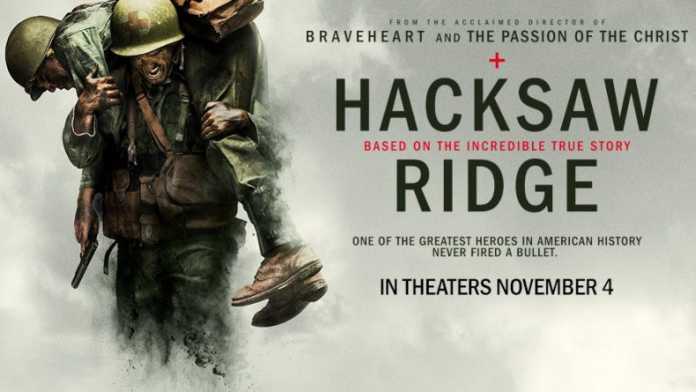I saw an amazing film a couple of weeks ago. Hacksaw Ridge was the title, a dramatic war movie starring Andrew Garfield and Theresa Palmer, based on the true story of war hero Desmond Doss, a medic who saved the lives of 75 men during WWII.
The film was incredible. One of those nail biters that has you on the edge of your seat for the entire 139 minutes.
I was on the verge of standing from my chair about to erupt in applause at the movie’s conclusion, when a familiar name appeared on screen.
Director: Mel Gibson.
Mel has been out of the spotlight for some time and I had somehow missed that he was the film’s director, despite watching a couple of trailers and tuning in a little to the hype that surrounded its release.
Had I known Hackshaw was directed by Mel would I have paid money to see it? I don’t know. Maybe not. But when is it time for society to forgive a person for the mistakes of their past, no matter how vile, and what does it say about our world if we choose to forgive him or more brutally to forget him?
For millennials like me who may think he is merely a washed up old actor, we have to understand that Mel was the ‘it’ boy of Hollywood back in the day. He was the stud who stole hearts in What Women Want and impressed the boys in Braveheart- he could do know wrong.
Then came his DUI arrest in 2006 followed by a spray of anti-Semitic insults that saw him plummet on the popularity scale. Later, there were claims of domestic abuse from his ex, coupled with sexist and racist comments recorded and leaked for the public to hear.
He reaffirmed that he wasn’t the nicest guy and so we, as a society, shunned him for a little bit.
I remember a surprisingly unpretentious philosophy class at uni that questioned whether or not we would feel comfortable with an ex-prisoner moving next door to us. They have done the time for their crime and are back on the streets, they have been reformed to the standard of the legal system so surely they earned a clean slate?
No? Why not?
Further, should neighbours be notified of the new resident’s past indiscretions or does an ex-felon deserve a new beginning free of the inevitable judgement that would come with the reveal of their previous crimes? What if these neighbours had young children? As expected, the majority said they would feel uncomfortable. But is that fair? Probably not.
I acknowledge of course that Gibson was never an actual prisoner and his crimes were not of the brevity of convicted felons, but metaphorically speaking he has certainly been caged up and out of sight for some time.
And now, almost a decade after his demise, a sober Mel Gibson is back in full view and is probably going to pocket a few globes at tonight’s night of nights.
Maybe Mel has done his time and deserves our forgiveness, or maybe he doesn’t.
Regardless of your view, Gibson poses as a symbol for those outcast few whose past faults have altered the wider world’s perception of them, and provides the hope that these faults may not define them forever.
Maybe just for a really really long time.


![5 Reasons You Should Travel Alone Airplane [image source: chau nguyen/ http://thedevilhatessweatpants.blogspot.com.au ], crowd ink, crowdink, crowdink.com, crowdink.com.au](https://crowdink.com/wp-content/uploads/2016/08/Chau-airplane-218x150.jpg)





























